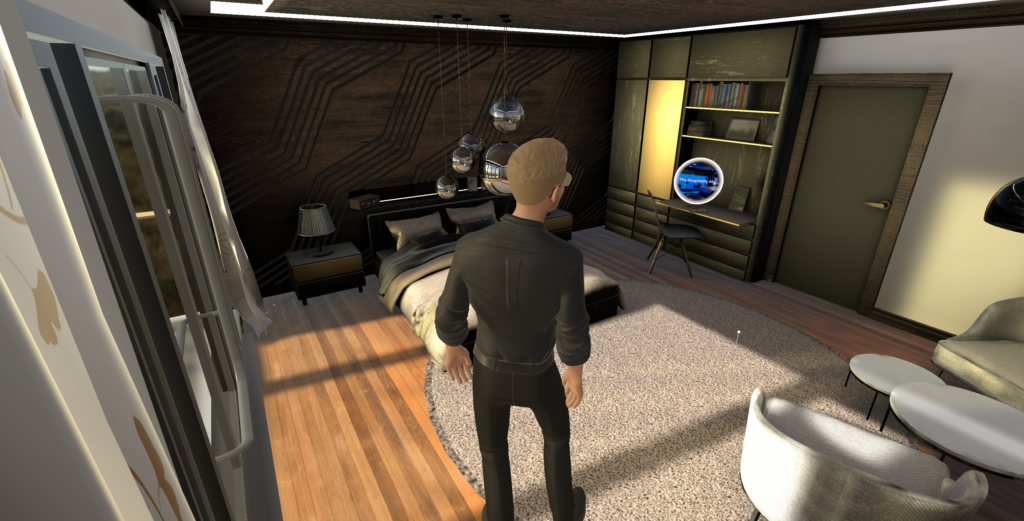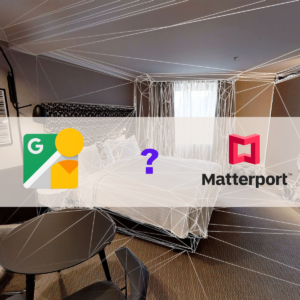
Panora Studio
Panora Studio is the production studio of The Hospitality Metaverse. All our 3D virtual tours for remote site inspections are produced with cutting-edge Matterport technology.

The internet has undergone significant transformations since its inception in the 1990s, evolving from simple static web pages to sophisticated web applications and services. We are now on the verge of a new internet era known as Web3, which promises to reshape the hospitality industry. In this blog post, we will discuss Web3 and its potential impact on the hospitality sector.
Web1, the “static web,” was the first iteration of the internet, characterised by basic web pages that provided information about businesses or organisations, with limited user interaction. Hotels and other hospitality businesses utilised static websites to share information about their properties and services.
Web2, the “interactive web,” emerged in the early 2000s with the rise of social media platforms and web applications, enabling greater user interaction and engagement. The hospitality industry quickly adopted Web2 technologies, using social media to engage with guests and promote their properties, and embracing online review platforms like TripAdvisor.
Web3, or the “decentralised web,” is the next internet iteration, built on blockchain technology, a secure and transparent distributed ledger enabling trustless transactions. Web3 is defined by decentralisation, interoperability, and user data ownership.
Hospitality Industry Use Cases; Web3 has the potential to revolutionise the hospitality industry in several ways:
Digital Twins: Digital twins, or digital replicas of physical assets such as hotel rooms or meeting spaces, can be stored on a blockchain and accessed by guests, event planners, and hotel staff. This facilitates real-time asset monitoring and provides a more immersive and interactive guest experience.
NFTs: Non-fungible tokens (NFTs) are unique digital assets that can be bought, sold, and traded on a blockchain. Hospitality businesses can use NFTs to create exclusive experiences for guests, such as special event access or VIP treatment.
Loyalty Programs: Decentralised loyalty programs enabled by Web3 can offer more transparent, secure, and flexible rewards systems than traditional programs. Guests can earn loyalty rewards in the form of cryptocurrency or digital assets, redeemable for hotel stays, dining, and other services.
Decentralised Marketplaces: Web3 facilitates the creation of decentralised marketplaces that directly connect buyers and sellers, eliminating intermediaries. This can reduce transaction costs and increase transparency for all parties.
Improving Direct Bookings: Web3 can help hotels enhance their direct booking channels by providing secure, transparent transaction platforms. This can reduce reliance on third-party booking platforms and improve profit margins.
The metaverse, an immersive digital environment where users can interact with each other and virtual objects, will be significantly impacted by Web3, as it enables decentralisation, interoperability, and digital asset ownership.
In the hospitality industry, the metaverse can create new marketing and sales opportunities. Companies can develop virtual experiences, allowing customers to explore their properties before booking. Customers can also purchase NFTs of virtual real estate, redeemable for real-world rewards like hotel room discounts, free meals, or exclusive event access.
The internet’s evolution from Web1 to Web2 to Web3 has continuously enhanced interaction, personalisation, and immersion. Hospitality companies that capitalise on these changes and adopt new technologies will thrive in the coming years. From digital twins to decentralised marketplaces to the metaverse, the opportunities for innovation are limitless. It’s time to explore the potential of the metaverse and Web3 in the hospitality industry.

Panora Studio is the production studio of The Hospitality Metaverse. All our 3D virtual tours for remote site inspections are produced with cutting-edge Matterport technology.

Exploring the intricacies of virtual tours: Matterport 3D vs. Google Streetview. Dive into a head-to-head comparison, unpacking their strengths and limitations in the hospitality sector. Discover which platform reigns supreme and why. Elevate your venue’s virtual presence.